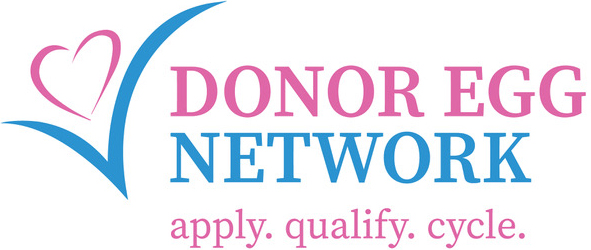Top 3 Reasons Women Donate Eggs

People are often curious as to why young women want to donate their eggs to “complete strangers.” While answers to this question vary, three main themes drive their willingness to participate in the egg donation process.
Top Reasons Women Choose to Donate Their Eggs
After years of being part of this incredible work, the Donor Egg Network has spoken to hundreds of women between the ages of 20 and 30 who have elected to donate their eggs. Of course, we’re always interested in what brought them to this decision, and here are three of the most common responses we hear.
1. The desire to help women who can’t get pregnant
By and large, the driving force behind an egg donor’s decision to share her viable eggs with others is the desire to help someone else become a mother. Any woman who wants to become a mother someday can imagine the heartbreaking reality women experience when they hear they can’t have children using their own eggs. Some of our donors have witnessed this experience firsthand when family members or friends experienced this for themselves. The desire to help in any way they can inspire them to reach out to egg donation programs like ours.
Also, many of our donors care deeply for someone in the LGBTQ+ community or are members of the LGBTQ+ community themselves. Egg donors are critical in many LGBTQ+ family building, which means egg donors play a prominent role in helping those dreams come true.
2. They appreciate the financial compensation
Egg donors commit their time and effort, and they undergo a medical procedure to retrieve their eggs. Screening includes a family medical history review, physical and genetic evaluations, infectious disease and toxicology screens, and a psychological evaluation. During the egg donation cycle, they will take injectable fertility medications to hyper-stimulate their ovaries. Preparation for a first cycle can take up to two months culminating with the cycle itself taking approximately two weeks. As much of the screening will not need to be redone, subsequent cycles can be completed within the six weeks, including cycle preparation.
For their time and effort, egg donors receive generous financial compensation. A donor in our program who completes six cycles can expect to earn between $50K - $55K. Most of the women who donate their eggs use this compensation to finance college tuition, pay off college loan debt, invest in graduate school, help purchase their first home and/or travel to their dream destinations.
3. Donating their eggs does not affect their own fertility
Very few women would donate eggs if there was any chance it compromised their own future fertility. Most of our egg donors plan to become mothers themselves or add to their family at some point in the future.
Donating eggs does not affect a donor’s future fertility. We verify a woman’s ovarian reserve (the number of eggs she has waiting to mature) before moving forward with an egg donation cycle. Women have approximately 400,000 available eggs at menarche (first menstrual period). If initial screening shows reserves may be lower than average, the egg donation process would stop there. This wouldn’t mean that the donor candidate would experience infertility herself as only one of her eggs needs to ovulate to achieve pregnancy, but rather her fertility “window” may be a bit shorter than average. This early awareness also allows her to create a more informed fertility plan for herself. Fortunately, most women have more than enough eggs, and the egg retrieval process leaves thousands of viable eggs for them to achieve pregnancy in the future.
Do These Reasons to Donate Eggs Resonate?
Are you interested in learning more about the egg donation process? Get in touch with us here at the Donor Egg Network. Your eggs are precious, and we value your time and willingness to give one of the most invaluable gifts one human can give to another: the gift of new life.


